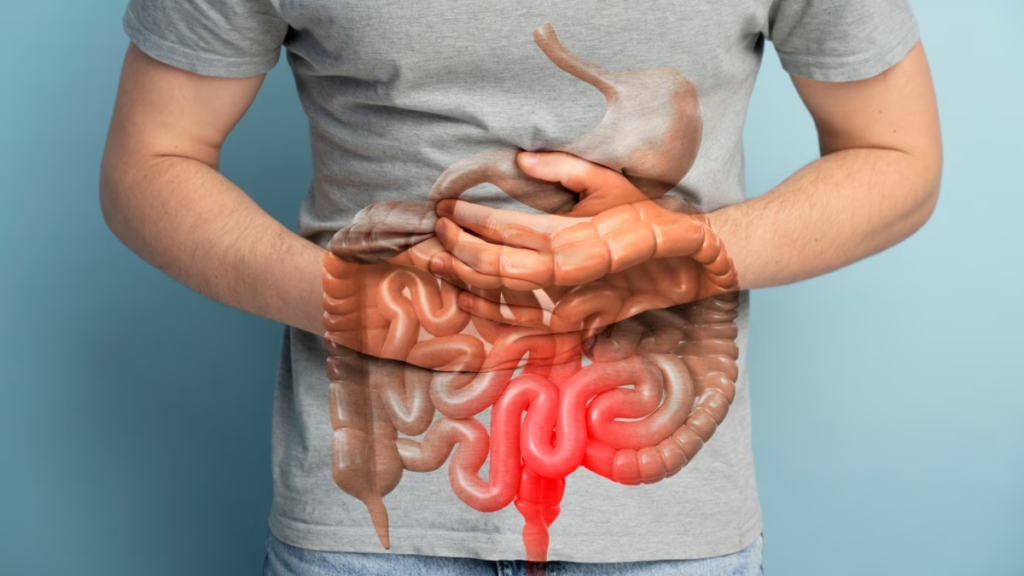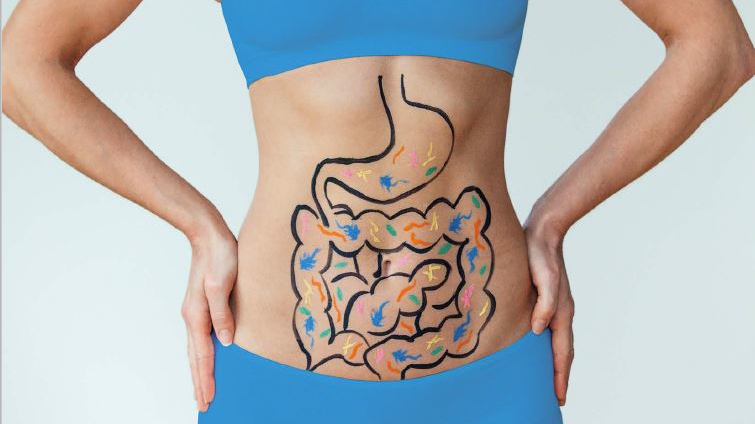
Table of Content
Introduction to Gut Health
Imagine a world where your mood, energy levels, and overall well-being are directly linked to what happens in your gut. It sounds surprising, but the science behind gut health reveals fascinating connections that can transform our understanding of wellness. The microbiome—a complex community of bacteria living within us—plays a pivotal role in not just digestive health, but also mental clarity and emotional stability. As we dive deeper into this intricate relationship known as the gut-brain connection, it becomes clear why nurturing our gut is essential for thriving in every aspect of life. Let’s explore how taking care of our guts can lead to a happier and healthier existence.
The Gut-Brain Connection
The gut-brain connection is an intriguing aspect of our health. Research shows that the gut and brain communicate constantly, influencing each other in profound ways. This two-way street impacts everything from mood to digestion.
Your microbiome plays a key role here. The trillions of bacteria residing in your digestive system send signals to the brain, affecting emotions and mental clarity. A healthy gut can enhance feelings of happiness and reduce anxiety.
Conversely, stress can disrupt this harmony. When you’re stressed or anxious, it may lead to digestive issues like bloating or discomfort.
Understanding this connection opens doors for holistic wellness approaches. By nurturing your gut health through proper nutrition and lifestyle choices, you might also bolster your mental well-being. It’s a fascinating relationship worth exploring more deeply as we seek optimal health solutions.
Factors that Affect Gut Health
Many elements influence gut health, shaping our digestive wellness and overall well-being. Diet is a primary factor. A balanced intake of fiber-rich foods supports a healthy microbiome.
– Stress also plays a significant role. Chronic stress can disrupt the delicate balance of gut bacteria, leading to digestive issues.
– Antibiotics affect gut flora too. While they are essential for treating infections, they often wipe out beneficial bacteria alongside harmful ones.
– Age is another consideration; as we grow older, our microbiome naturally changes, which can impact digestion and nutrient absorption.
– Additionally, lack of sleep contributes to poor gut health. Quality rest is vital for maintaining microbial balance in the intestines.
– Sedentary lifestyles can hinder optimal digestion and metabolism. Incorporating movement into daily routines encourages better gut function and overall vitality.
Symptoms of Poor Gut Health
Poor gut health can manifest in various ways, often affecting multiple aspects of your life. Digestive issues like bloating, gas, or constipation are common indicators that something is off in your microbiome.
You might also experience unexpected weight fluctuations. Difficulty losing weight or gaining it without changes to diet and exercise routines could signal an imbalance in gut bacteria.
Mood disturbances are another red flag. Anxiety and depression have been linked to gut health due to the intricate gut-brain connection.
Skin problems may arise as well; conditions like eczema or acne can sometimes be traced back to poor digestive health.
Frequent fatigue that doesn’t seem tied to sleep patterns can point toward nutrient absorption issues stemming from a compromised gut. Listening to these symptoms is crucial for taking proactive steps toward better overall wellness.
How to Improve Gut Health
Improving gut health is a journey worth taking. Start by incorporating more fiber into your diet. Whole grains, fruits, and vegetables feed the beneficial bacteria in your microbiome.
Hydration also plays a key role. Drinking plenty of water helps maintain the mucosal lining of the intestines and promotes digestion.
Regular physical activity can boost digestive health too. Aim for at least 30 minutes of moderate exercise most days to keep things moving smoothly.
Mindfulness practices like meditation may reduce stress levels that affect gut function. Stress management is crucial for maintaining a healthy gut-brain connection.
Consider adjusting your eating habits. Chew your food thoroughly and eat slowly to aid digestion effectively—small changes can make a big difference over time.

Importance of Probiotics and Prebiotics
Probiotics and prebiotics play a crucial role in maintaining gut health. Probiotics are live beneficial bacteria that enhance the microbiome, supporting digestion and boosting immunity. These tiny warriors can help keep harmful bacteria at bay, promoting a balanced gut environment.
Prebiotics, on the other hand, are non-digestible fibers that serve as food for probiotics. They nourish these good bacteria, allowing them to thrive and multiply. Together, they create a harmonious relationship essential for optimal digestive health.
Incorporating both into your diet can lead to significant wellness benefits. Improved mood regulation is one unexpected advantage linked to this duo due to their impact on the gut-brain connection.
Adding fermented foods like yogurt or kefir provides probiotics while sources like garlic and bananas offer ample prebiotic fiber. Embracing these elements not only supports your gut but enhances overall vitality as well.
Foods that Promote Good Gut Health
Incorporating a variety of foods into your diet can significantly enhance gut health. Fiber-rich fruits and vegetables are essential for maintaining a healthy digestive system. Think apples, bananas, berries, and leafy greens.
Whole grains like oats and quinoa also play a vital role. They provide the necessary nutrients that feed beneficial bacteria in your microbiome.
Fermented foods should not be overlooked. Yogurt, kefir, sauerkraut, and kimchi introduce probiotics that support balance within the gut flora.
Healthy fats from sources like avocados and olive oil can soothe inflammation while promoting nutrient absorption.
Nuts and seeds add protein along with prebiotic fibers that nourish good bacteria.
Including these diverse food groups in your meals fosters an environment where good gut health can thrive.
Lifestyle Changes for Better Gut Health

Making small adjustments to your daily routine can significantly enhance gut health. Start by prioritizing hydration. Drinking enough water supports digestion and helps maintain a balanced microbiome.
Incorporating regular physical activity is another vital change. Exercise promotes healthy gut function and can alleviate symptoms of digestive distress. Aim for at least 30 minutes of movement most days.
Mindfulness practices, such as yoga or meditation, also play a crucial role in wellness. Stress has been linked to various gut issues, so learning techniques to manage it can lead to improvements in overall well-being.
Sleep quality shouldn’t be overlooked either. Aiming for 7-9 hours each night aids the body’s natural repair processes, including those affecting digestive health.
Limit processed foods and sugar intake while embracing whole foods that nourish your body and promote a healthy gut environment.
Medical Treatments for Gut Health Issues
Medical treatments for gut health issues can vary widely depending on the specific condition. For example, antibiotics may be prescribed to combat bacterial infections disrupting your microbiome. However, overuse of these drugs can lead to further imbalances.
For chronic conditions like irritable bowel syndrome (IBS) or inflammatory bowel disease (IBD), healthcare providers might recommend anti-inflammatory medications or immunosuppressants. These aim to reduce inflammation and promote healing within the digestive tract.
Probiotics often play a pivotal role in treatment plans as well. They help replenish healthy bacteria in the gut after antibiotic use or during episodes of dysbiosis.
In some cases, dietary adjustments are made under medical supervision. This includes eliminating certain food triggers known to exacerbate symptoms.
Regular follow-ups with a healthcare professional ensure that any changes yield positive results and provide insights into maintaining long-term gut health.
Conclusion: Taking Care of Your Gut for a Happier and Healthier Life
Taking care of your gut is crucial for enhancing not just digestive health, but also overall well-being. A healthy gut influences various aspects of your life, from mood stability to immune function. By nurturing the microbiome through proper nutrition and lifestyle changes, you can unlock numerous health benefits.
Incorporating probiotics and prebiotics into your diet plays a significant role in maintaining a balanced gut environment. These essential components work synergistically to promote a thriving microbial community within the gastrointestinal tract.
Additionally, awareness of the factors that affect gut health empowers you to make informed choices. Whether it’s managing stress or adjusting dietary habits, small shifts can lead to remarkable improvements in wellness.
Embrace foods that support good gut health—think fiber-rich fruits, vegetables, whole grains, and fermented products. Lifestyle adjustments such as staying active and getting enough sleep are equally important in fostering a healthy gut.
If issues persist despite making these changes, consulting with healthcare professionals can provide targeted medical treatments tailored to address specific concerns.
Prioritizing your gut health sets the foundation for a happier life filled with vitality and well-being.
For more such content, keep visiting QAWire


